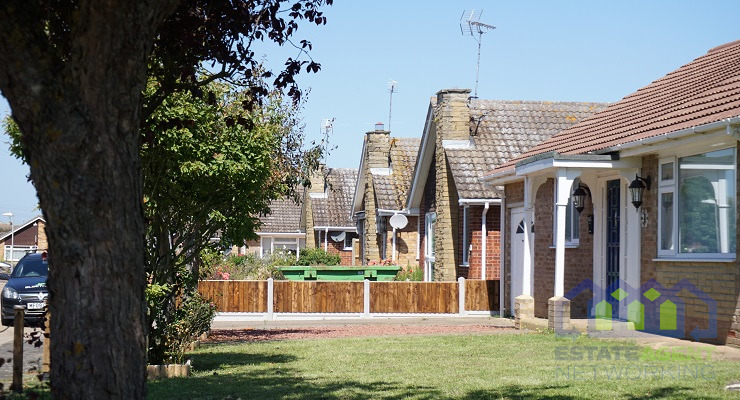What’s the Best Time of Year to Have New Insulation Installed?
Do you think the winter may be an ideal time to schedule some home improvements, such as new insulation? While many of us take on renovations and repairs during this chilly season, it’s important to consider the advantages and drawbacks of having your insulation installed in each season before making a commitment.
For those who want energy efficiency but also value convenience and cost savings, asking, “What’s the best time of year for my new insulation installation?” is essential.
In this guide, we’ll explore all sides to determine when it makes sense to have your next insulation install done. What works for one homeowner might not apply to another; we are here to help equip you with the knowledge bank necessary to make an informed decision.
Why Install New Insulation?
New insulation is an excellent home improvement that can significantly increase the energy efficiency of your house. This enhancement offers year-round comfort and can lead to substantial savings on energy bills. However, it’s critical to understand why and when to install new insulation. Here are some reasons why you might consider installing new insulation:
Improved Energy Efficiency
Over time, insulation can degrade, diminishing its effectiveness in preventing heat transfer. New insulation will provide superior thermal resistance, improving energy efficiency and savings.
Enhanced Comfort
The primary function of insulation is to maintain the desirable temperature inside the house. If you’re consistently feeling too cold in the winter and too hot in the summer, it may be time to consider new insulation.
Increase Home Value
If you’re considering selling your house, new insulation can add significant value to your property. It’s an upgrade prospective buyers will appreciate due to the potential cost savings and comfort it provides.
Prevent Moisture Problems
Insulation acts as a barrier to moisture. A failing insulation system might lead to mold, mildew, and structural damage. New insulation can help prevent these issues.
The Pros and Cons of Winter Installation
The winter season might seem like an ideal time to install new insulation, but there are both pros and cons to consider. Let’s take a look at each:
Pros
- Availability: Contractors typically have more availability during the colder months, making it easier to schedule your installation.
- Cost Savings: Some contractors offer discounts or promotions during the slow season, potentially leading to cost savings.
- Immediate Results: With winter being the coldest time of year, you’ll feel the benefits of new insulation right away.
Cons
- Weather Conditions: Extreme weather conditions may delay or affect the installation process.
- Higher Labor Costs: Due to the colder temperatures, contractors may charge higher labor costs for working in uncomfortable conditions.
- Potential Delays: In some areas, winter weather may cause delays in materials delivery, which can impact the installation timeline.
The Pros and Cons of Summer Installation
Just as with winter, there are pros and cons to consider when installing new insulation during the summer season. Let’s take a closer look:
Pros
- Comfortable Working Conditions: Contractors may be more comfortable working in warmer temperatures, leading to a quicker and smoother installation process.
- Faster Installation: The warm weather can lead to faster drying times for adhesives and sealants used during the insulation process.
Cons
- Busy Season: Contractors often have a high demand during the summer months, making it more challenging to schedule an installation.
- Higher Costs: Due to the higher demand, contractors may charge more for their services during this season.
- Delayed Benefits: Depending on your location, you may not see the energy savings benefits of new insulation until the following winter.
Other Factors to Consider
In addition to the pros and cons of each season, there are other factors to consider when deciding on the best time for your new insulation installation. These factors include:
- Personal Schedule: Consider your personal schedule and availability when deciding on a time for installation.
- Local Climate: The local climate can impact the efficiency and performance of insulation. Be sure to choose insulation materials best suited for your area’s weather conditions.
- Current Condition of Insulation: If your current insulation is in poor condition, it may be necessary to install new insulation as soon as possible, regardless of the season.
- Budget: Your budget may also play a significant role in determining the best time for installation. Consider any discounts or promotions offered by contractors during certain seasons.
How to Choose the Best Contractor
Choosing the right contractor for your insulation installation is just as significant as deciding when to have it installed. A competent contractor will ensure quality work, use suitable materials, adhere to the set timeline, and provide a smoothly executed project. Thus, it’s essential to take time to evaluate potential contractors before making a decision. Here are some tips to guide you in choosing the best insulation contractor for your project:
Verify Licenses and Insurance
Always make sure to verify that the contractor you’re considering is properly licensed and insured. This not only protects you as the homeowner, but it also gives you assurance that you’re working with a reputable professional.
Check References and Reviews
Look for online reviews and ask for references from previous clients. This can give you a solid understanding of the contractor’s work quality, reliability, and customer service.
Evaluate Experience and Expertise
Ensure the contractor you choose has substantial experience with insulation installation and is familiar with the best practices and materials for your specific geographic location.
Get Detailed Estimates
Request detailed estimates from multiple contractors. Compare the cost, materials, and timeline proposed by each contractor to make an informed decision.
Assess Communication Skills
Communication is key in any construction project. Choose a contractor who provides clear explanations, answers all your questions, and keeps you informed throughout the project.
Conclusion
In conclusion, there is no definitive answer to the question of when the best time to install new insulation is. Both winter and summer have their pros and cons, and ultimately, the decision should be based on your individual circumstances.
It’s essential to weigh all factors carefully before making a decision and choose a reputable contractor for quality installation. With proper insulation, you can enjoy energy savings, comfort, and protection for your property all year round. Click here to contact an experienced contractor today!









